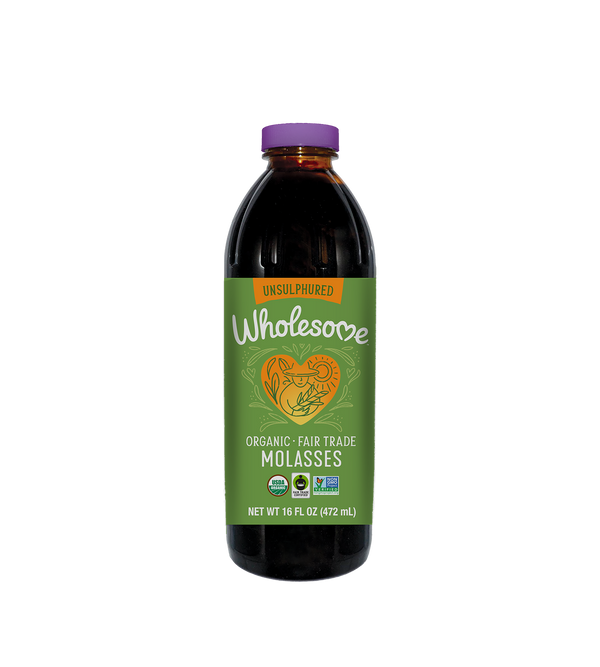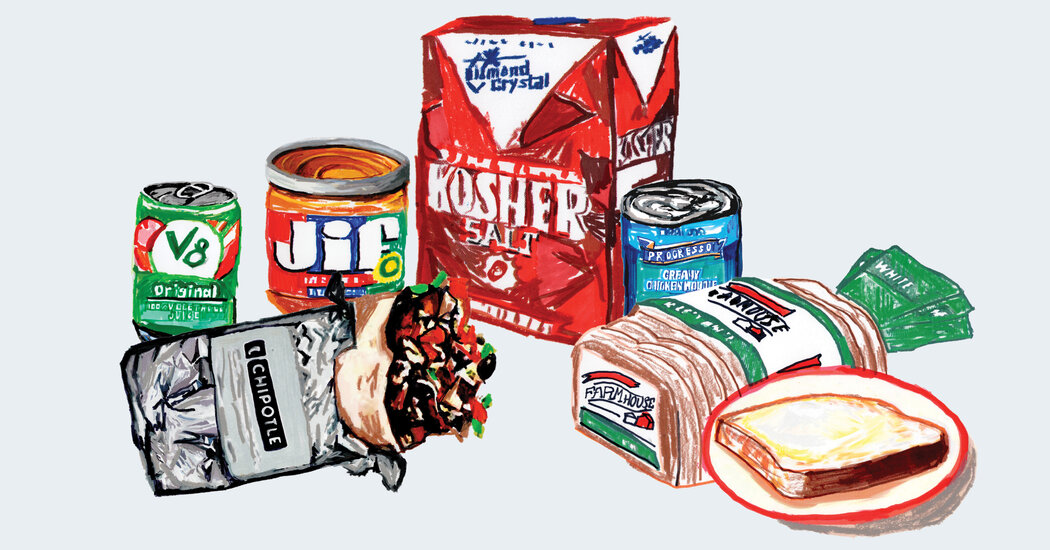ShawnM
Level 9 Valued Member
Same. The only ingredients in my pound of 90/10 of ground bison I had for breakfast was BISON! The way it should be!This why I eat meat.
- Caveman Me
Same. The only ingredients in my pound of 90/10 of ground bison I had for breakfast was BISON! The way it should be!This why I eat meat.
- Caveman Me
Yup, for me today a couple of pounds of ground beef/heart mix.Same. The only ingredients in my pound of 90/10 of ground bison I had for breakfast was BISON! The way it should be!
I hate the smell of molasses. They’re a very unclean animal.
Organic Fair Trade Molasses
Dark in color, our Organic Fair Trade Blackstrap Molasses offers a rich, full-bodied and robust flavor that perfectly complements gingerbread, cookies, bran muffins, chili, BBQ sauce and more.shop.wholesomesweet.com
Depends on the day. If I do 100 swings and some other stuff first thing, then I eat a ton first thing and don't have a ton the rest of the day. Tomorrow I'm running a meeting so I will have collagen in my coffee in the morning and carry some bone broth with me. I probably won't have anything solid until this time tomorrow.I’m the same as @Steve Freides , except minus the protein bar…
I always thought the Horta from Star Trek smelled like a silicone pizza.I hate the smell of molasses. They’re a very unclean animal.
the main reason they fortify cereal grains is because whatever nutrients were originally there in the whole grain were lost in processing. Wonder Bread is basically a soft delicious shell with artificially added ingredients to pass muster. Kellogg's or any other processed grain flake aren't any better. Nutritionally, one might well be better off with the processed fortified stuff since whole grains are loaded with lectins and other anti-nutrients that not only prevent uptake of whatever good stuff might be in the grain but leach nutrients out of the consumer's body.I love corn flakes. Let's look at the ingredients of corn flakes as sold by Kellogs in the US.
Milled corn, sugar, malt flavor, contains 2% or less of salt. Vitamins and Minerals: Iron (ferric phosphate), niacinamide, vitamin B6 (pyridoxine hydrochloride), vitamin B2 (riboflavin), vitamin B1 (thiamin hydrochloride), folic acid, vitamin D3. vitamin B12.
The vitamins and minerals added are called due a program of food "fortification," which is commonly done to prevent deficiencies from occurring in childhood. Many things are fortified for these reasons - including most milk, many cereals, and even salt. These are not "bad things" added to processed food.
This article gives some additional explanation for fortification of foods, some rationales why, as well as some advantages and disadvantages.

Food Fortification: The Advantages, Disadvantages and Lessons from Sight and Life Programs
Deficiencies in one or more micronutrients such as iron, zinc, and vitamin A are widespread in low- and middle-income countries and compromise the physical and cognitive capacity of millions of people. Food fortification is a cost-effective strategy with ...www.ncbi.nlm.nih.gov
Dietary sodium isn't the root problem. Prepared foods (as you said) and other foods high in carbohydrate are the prime driver of the risk factors usually associated with sodium consumption. Carbohydrate inhibits the kidneys' ability to excrete sodium which then causes water retention to keep the blood stream sodium levels manageable. (if you have ever done a low carb diet, that first week or two of peeing constantly is the kidneys excreting that excess sodium. If paying attention to it, there is usually a concomitant drop in BP with that fluid loss too) The more carbs consumed the more the kidneys reabsorb rather than excrete sodium.
Salt Is Hiding Everywhere. Can You Spot It?
Sodium lurks in surprising places. See if you can identify the biggest offenders with this quiz.www.nytimes.com
Direct link to my comment on the article:

Salt Is Hiding Everywhere. Can You Spot It?
Sodium lurks in surprising places. See if you can identify the biggest offenders with this quiz.www.nytimes.com
LMK if the links don't work for anyone - impossible for me to tell since they do work for me. TIA.
-S-
You are technically correct that food processing also often causes a loss of micronutrients, and grains are an example of that. Cooking (a type of processing) almost anything (including veggies) also causes a loss in micronutrients. It also generally makes the micronutrients that remain more bioavailable - although this is not always the case.the main reason they fortify cereal grains is because whatever nutrients were originally there in the whole grain were lost in processing. Wonder Bread is basically a soft delicious shell with artificially added ingredients to pass muster. Kellogg's or any other processed grain flake aren't any better. Nutritionally, one might well be better off with the processed fortified stuff since whole grains are loaded with lectins and other anti-nutrients that not only prevent uptake of whatever good stuff might be in the grain but leach nutrients out of the consumer's body.
I'm all for whole unprocessed "real" food. (Raw food diets are a gateway to serious malnutrition however, read Catching Fire: How Cooking Made Us Human by Richard Wrangham) You are right that fortification involves adding nutrients that were never there in the first place (on top of and distinct from "enrichment" which is technically replacing stuff lost in processing: wonder bread has both. oh joy!). In other words, the public health strategy was to fortify the nutritionally vapid stuff folks were already eating instead of handing out vitamin pills or encouraging different better foods. It is debatable that any nutrients in whole grains are sufficiently bioavailable for the reasons I mentioned before. They are also associated with making other problems more likely in cultures with low access to animal sourced food: rickets for example and stunting. It is a disturbing and ironic factoid that US exports of grains and ag technologies have made some of the poorest, most malnourished nations almost overnight the most obese and still the poorest and most malnourished nations on the planet.You are technically correct that food processing also often causes a loss of micronutrients, and grains are an example of that. Cooking (a type of processing) almost anything (including veggies) also causes a loss in micronutrients. It also generally makes the micronutrients that remain more bioavailable - although this is not always the case.
You are wrong that we fortify foods BECAUSE those nutrients were lost. We fortify foods BECAUSE it prevents (or attempts to prevent) population-wide deficiencies.
Specifically looking at Raw Corn vs Corn Flakes ... Only folic acid, vitamin D, Vitamin B composite, and iron are added to Corn Flakes. There is 327 micrograms of folic acid in corn flakes (42 micrograms in raw), no vitamin D in raw corn flakes, and 28mg of iron in corn flakes (0.5 mg in raw). It is hard to say exactly how the B vitamins spread out, but you can see it is not replacing what is lost in processing, it is fortifying for something specific (public health). You could argue the due to the calories discrepancy of 100g serving (86 calories raw corn vs 365 calories corn flakes) that this would look less stark, but even if we equated calories it would still be double the folic acid added (81 micrograms per 86 calories of corn flakes) and 14 times the iron (7 mg of iron per 86 calories of corn flakes).
Please, be an advocate for more whole foods in someone's diet, and if you want to go the "raw" route (to minimize processing) - by all means. And we would likely agree that if one ate a "great" diet full of a variety of produce and animal products that food fortification would not be necessary.
However, food fortification exists as a solution in the present world where due to a variety of socioeconomic reasons the majority of people in the world DO NOT have access to a great diet, not due to processed foods - which are often the only calories the majority of low SES people can afford or procure, particularly in other countries, particularly if urbanized.
I don't really have the appetite for continuing these arguments or conversations. Please, have the last word if you would like.
I know I said you could have the last word but I love Wrangham. I found him when I was a young budding biologist. He’s done some amazing work over the years. He has a very controversial book called Demonic Males that is SUPER interesting.Richard Wrangham
As long as we both like something, right? That title looks interesting, he was very conflicted about how gender roles shook out cross culturally vis a vis cooking.I know I said you could have the last word but I love Wrangham. I found him when I was a young budding biologist. He’s done some amazing work over the years. He has a very controversial book called Demonic Males that is SUPER interesting.
Although this recent article kind of dulls Wrangham's "Just Be Bonobo" https://www.nytimes.com/2024/04/12/...e_code=1.ok0.CIQt.ih4YiN_eZc4c&smid=url-shareI know I said you could have the last word but I love Wrangham. I found him when I was a young budding biologist. He’s done some amazing work over the years. He has a very controversial book called Demonic Males that is SUPER interesting.
Very interesting! I think my biggest caution is to not overturn a century of study with a single study, and my biggest question is whether “acts of aggression” are defined the same across the studies. I also wonder if their ranges, food sources, or competitors have shifted as humans have expanded into their areas - eg chimps were thought to be more aggressive due to more limited resources due to competing with gorillas.Although this recent article kind of dulls Wrangham's "Just Be Bonobo" https://www.nytimes.com/2024/04/12/...e_code=1.ok0.CIQt.ih4YiN_eZc4c&smid=url-share
